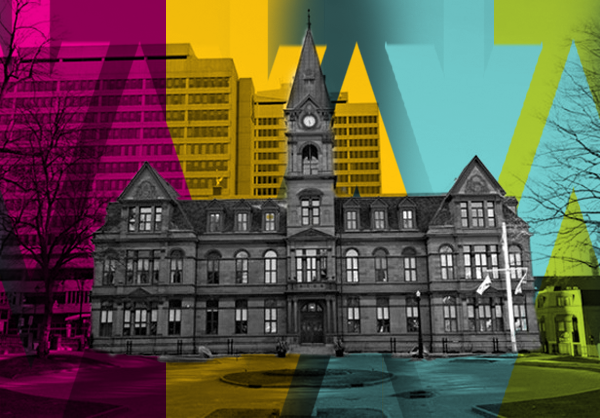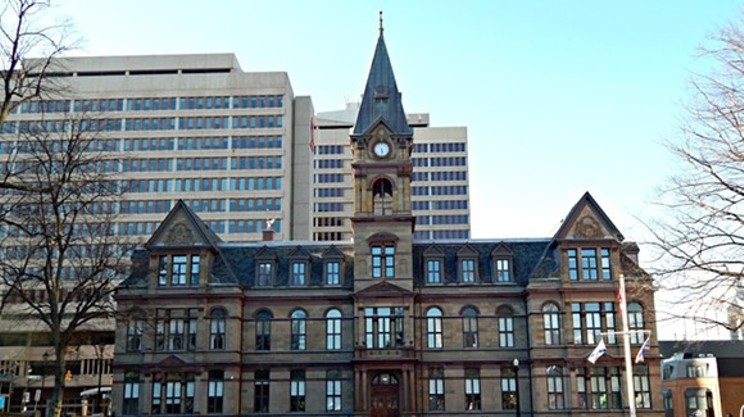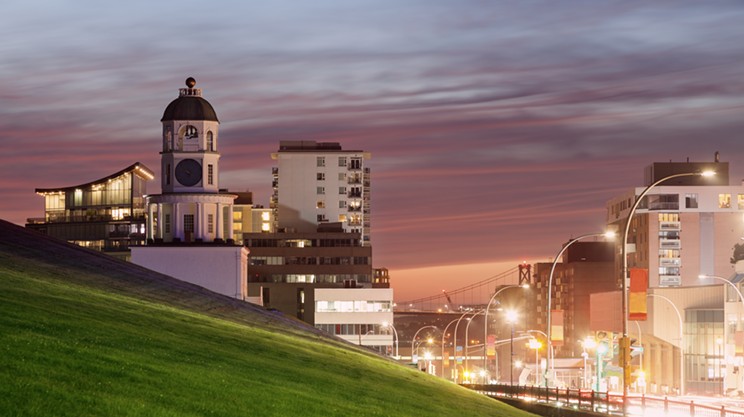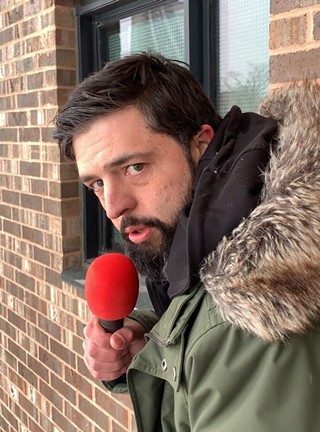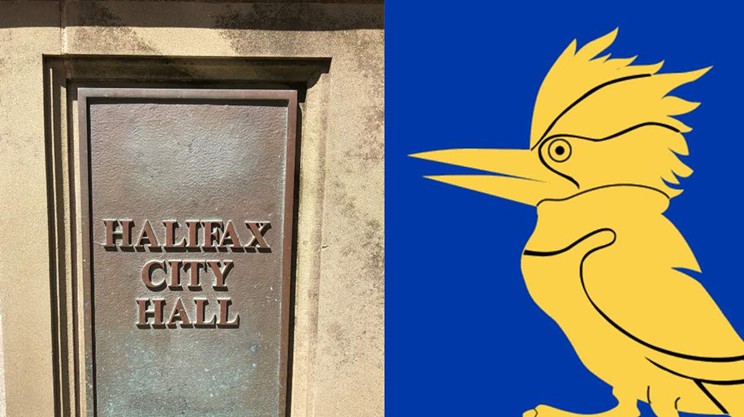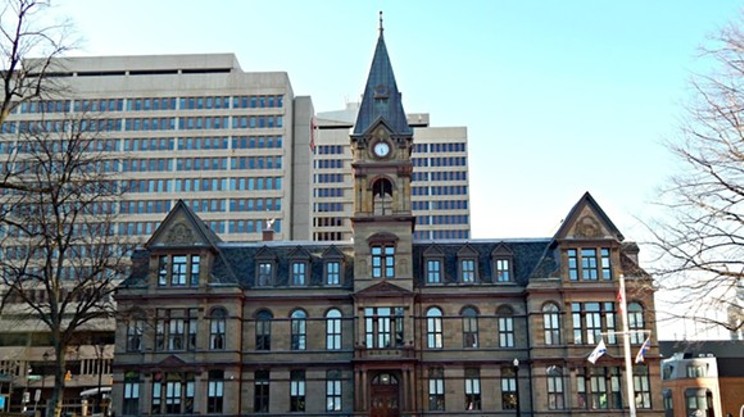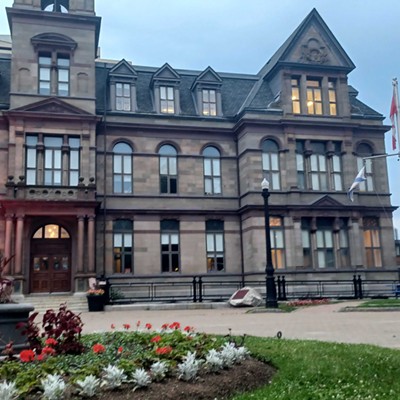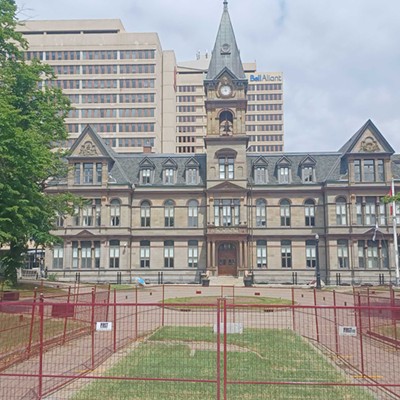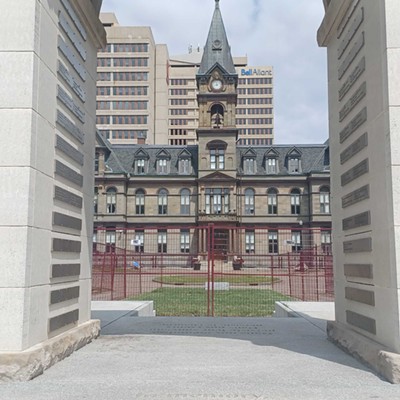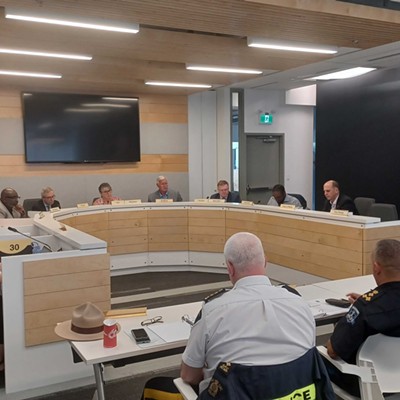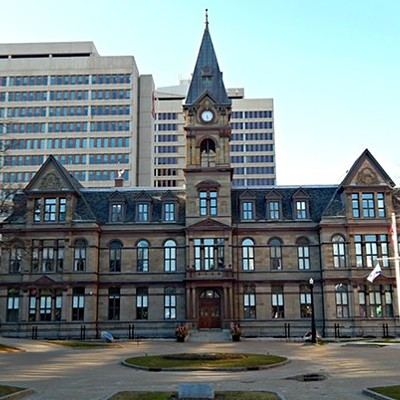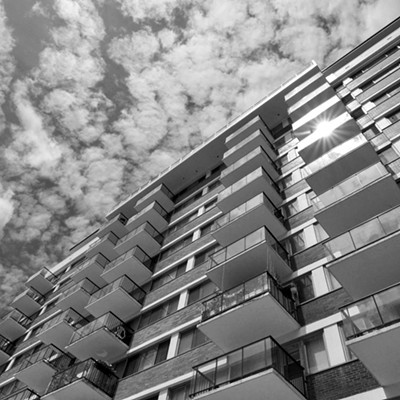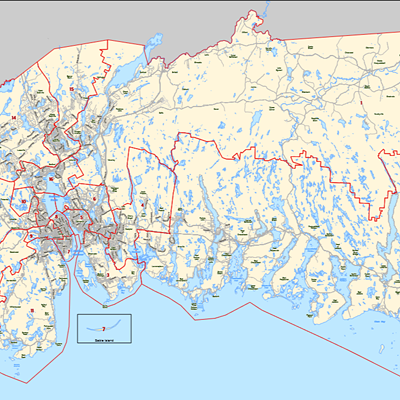The $104.6 million department of public works budget passed after a two-day budget meeting this week.
The public works budget will get a bit of a shock in future years as the province gave the city approximately $14 million in asphalt liabilities. In this year’s budget, the city allocated $6 million to deal with the roads thrust upon HRM by the Nova Scotia government. But Halifax’s public works boss Brad Anguish told the budget committee he expects the cost to the city will increase to about $13 or $14 million as staff figure out just how much work these streets need.
As a reminder, the provincial government has many legal options to levy taxes, and last year generated $12.7 billion from those taxes (and other revenue streams). HRM’s entire budget this year was projected to be less than $1 billion, and the city only really has one way to levy taxes (property tax) and minimal other revenue streams.
The province is able to download these streets to the city’s budget because of an agreement signed at the time of amalgamation in 1996 called HRM-01. At the time, the city and province agreed that the city would be responsible for provincial highways in the urban core, and in exchange, the province would be responsible for local roads in rural areas. The two parties agreed that the city would take over the roads in the rural areas when the density was high enough that the city could afford to take over the road maintenance. The city can, according to the 1996 agreement, afford the roads this year (it can’t).
The province initially tried to give four zones to the city, but city staff successfully argued that only Area 1 (which, as listed in this report, includes roads within Boutiliers Point, Ingramport, Head of St. Margarets Bay, Lewis Lake, Hubley and Upper Tantallon) and Area 4 (as listed in this report as including roads within East Preston, Lake Echo, Mineville and the western areas of Lawrencetown) qualify based on density, so the city is only getting those two areas, for now.
These areas are reviewed every three years, so the city can expect to take on areas 2 and 3 in the near future if current growth trends continue.
In the years since amalgamation, it does not seem like the city has been planning for an increased expenditure on roads. As has been pointed out many times in the budget process by various councillors, previous councils have focused on keeping the tax rate low, which means municipal service delivery is already as lean as it can be. Which, in turn, means the city’s budget can not easily absorb an extra $14 million in costs.
The debates in this year’s budget process are primarily fights over potential savings or revenue streams of less than a million dollars. Council decided to send a commercial fee increase to the budget adjustment list. If passed, it will net the city $110,000.
Council considered, but ultimately decided against making green bin collection every two weeks for everyone instead of just rural folks in the summer, which would be a savings of $900,000. But the debate went like this:
City centre councillors told their colleagues that the dense urban core needs weekly green bin pickup because green bins live on the sidewalks due to a lack of yards. Suburban councillors (and rural ones who have constituents with weekly pickup) told their colleagues that their constituents get jealous if the city gets something they don’t. And on top of that, not collecting green bins is smelly and attracts rodents and bears. Both of which negatively affect councillors’ popularity with their constituents.
Councillor Patty Cuttell also pointed out that the city needs to make sure it’s in compliance with diverting waste from Otter Lake’s landfill. She argued that fewer green bin pickups would mean people would throw compostable stuff into waste bins.
And this dichotomy—how council wants us to behave vs. how we actually behave—is at the centre of a lot of municipal debates. Green bin collection every two weeks, the travelling hazardous waste pickup locations (saving $150,000) and limiting bulky item curbside garbage pickup (saving $390,000) were all debated in the two-day meeting. Councillors made the point time and again that if they chose any of these cost-saving measures, we would still throw things out, but we would do so wrong at a greater cost to the city. Reducing green bin pickup would mean more food gets thrown in dumps, which is bad. Reducing large item curbside pickup means illegal dumping becomes worse.
As an aside, governing human behaviour is hard. Very hard. It is possible, in theory, for politicians to enact policy to try and elicit the behaviour they want to see. Councils could, if they wanted, decree that a street will be car-free or smoking can only happen at certain places. But selfish humans and inconsistent-when-possible enforcement are a recipe for policy disaster. And with that context, it’s easy to understand the polite frustration of active transit advocates as they complete their ritualistic acts of public suffering (making presentations to council). In the garbage budget debates, council demonstrated an understanding that humans need to be governed like a statistically significant portion of us will always choose to do the easy or lazy thing. But council’s policy decisions around people in cars lack the same depth of understanding and often pretend drivers are perfect and always follow the rules.
Speaking of statistically significant human behaviour, parking was also a topic during the public works budget debate. It’s hard to overstate the importance of the humble parking spot, and the importance of the policies around it. The committee added three parking fee increases to the budget adjustment list: Increasing street parking by 25% an hour ($656,000 in revenue), charging for evening parking, and charging for Saturday parking downtown ($538,000 in revenue).
These policy changes, should they come to pass, may be the foundation for the single most important piece of climate policy a city can implement. The very short version of a very detailed debate is this: Parking spots are massively undervalued, and charging fair market value for parking would force us to break our car reliance.
If illegal parking goes unpunished (which it does, council also sent beefed up towing enforcement to the BAL, which will cost $350,000), and parking is otherwise cheap or free, people are encouraged to drive. This is the invisible hand of the market guiding people to drive cars.
But if parking is expensive, people are discouraged from driving, and then would need to find different ways of doing what they need to do. Like taking the bus, riding a bike, walking somewhere, growing their own food and working together to fulfill community needs as a community. You know, all of the shit council says are its priorities. Regulating parking by charging what it’s worth would be the invisible hand of the market steering us away from climate change.
Fees to do street work were set in 2010 and haven’t really been touched since. To update them with inflation will net the city about $45,000 a year. This will likely come back to the BAL with a briefing note telling council if this fee can automatically adjust with inflation.
Council also considered removing snow clearing from the budget. By axing snow clearing for seniors, the city could save $600,000 a year. Are you someone who’s just learning about this program, but know someone who could use it? It will likely survives the budget cuts, so you can find out more here.
The city could save a million bucks if it stopped clearing snow at transit stops.
The city could also save $6.5 million if it didn’t clear sidewalks outside of downtown Dartmouth, Halifax… and Burnside.
In the debate, councillor Pam Lovelace told her colleagues it didn’t make sense to remove snow clearing from the budget. She argued that it didn’t make sense to talk about complete communities, build sidewalks, encourage transit and then ghost when the snow falls. People still need to move around in the snow. That side of the argument carried the day as snow clearing didn’t make it to the BAL.
But the big problem with this budget is the same problem that’s plaguing every level of government. It’s a subject that’s danced around constantly, but rarely addressed head-on. Fortunately, in Halifax, we get a window into what the debate around sustainability looks like on a practical, granular level due to the nature of the budget debates. We get a very good look at what the sustainability gap looks like as it manifests in the municipal budget of a mid-size Canadian city.
And this year, this is what the budget looks like: The city can’t maintain the status quo without a tax increase. The city can’t pay for the new infrastructure it needs without a tax increase. And, a perpetually increasing number of us can’t afford a tax increase.

